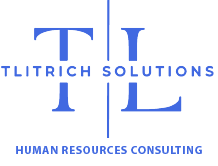At TLitrich Solutions, we understand that the workforce is evolving. As HR professionals, we’re at the forefront of this change, navigating the diverse needs and expectations of different generations. Today, we’re exploring the contrasts and commonalities between Baby Boomers and Generation Z when it comes to recruiting, hiring, job satisfaction, and workplace dynamics.
Recruiting & Hiring: A Tailored Approach Baby Boomers value stability and are often attracted to companies with a strong reputation and a clear career path. They prefer face-to-face interviews and traditional hiring processes. In contrast, Gen Z candidates seek innovation and flexibility. They’re drawn to companies with a strong online presence and are comfortable with digital interviews and interactive hiring practices.
Job Satisfaction: What Matters Most? For Baby Boomers, job satisfaction is closely linked to benefits like healthcare, retirement plans, and job security. They appreciate recognition for their experience and loyalty. Gen Z, however, looks for work-life balance, personal development opportunities, and a company’s social and environmental impact. They value feedback and a culture that fosters growth and learning.
Company Tenure: From Lifelong Careers to Dynamic Journeys Historically, Baby Boomers are known for their long tenures, often staying with the same company for decades. This generation believes in climbing the corporate ladder within one organization. On the flip side, Gen Z is more transient, with many expecting to work for multiple companies throughout their careers, seeking diverse experiences and growth opportunities.
Technology Expectations: From Adaptation to Integration Technology is a dividing line between the generations. Baby Boomers have had to adapt to technological advancements throughout their careers. They may prefer simplicity and user-friendly tools. Gen Z was born into a digital world and expects seamless technology integration in their work environment, from communication tools to AI-driven processes.
Benefits Expectations: Security vs. Flexibility The benefits that attract Baby Boomers are often centered around stability and long-term planning, such as pension plans and comprehensive health insurance. Gen Z tends to prioritize benefits that offer immediate and flexible advantages, like mental health days, wellness programs, and the ability to work remotely.
Employee Satisfaction: A Multifaceted Approach Employee satisfaction for Baby Boomers may hinge on respect for their experience and contributions, clear communication, and a sense of belonging. For Gen Z, satisfaction comes from a collaborative environment, diversity and inclusion initiatives, and a platform to voice their ideas and be heard.
Conclusion: Embracing Diversity for a Stronger Future At TLitrich Solutions, we believe that the key to a successful and harmonious workplace lies in understanding and embracing the unique qualities of each generation. By recognizing the differences and fostering an environment where both Baby Boomers and Gen Z can thrive, companies can build a dynamic, inclusive, and productive workforce.
As HR leaders, let’s continue to adapt and innovate, ensuring that our practices reflect the diverse tapestry of today’s talent pool. Together, we can bridge the generational gap and pave the way for a future where every employee feels valued and empowered.
